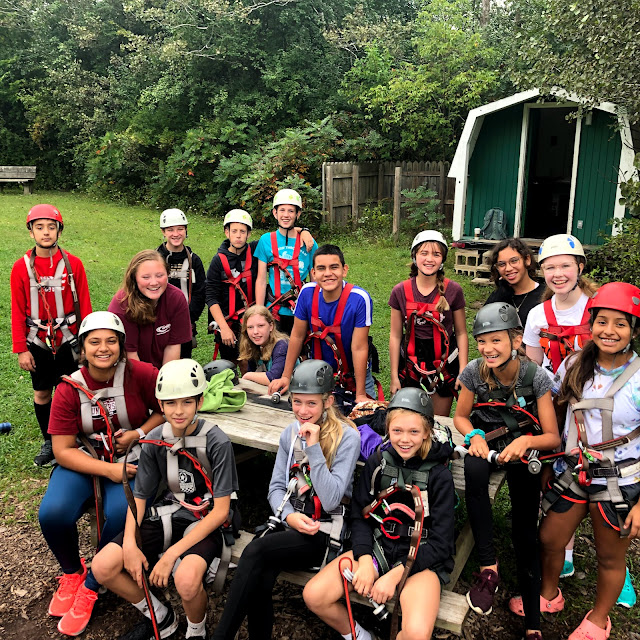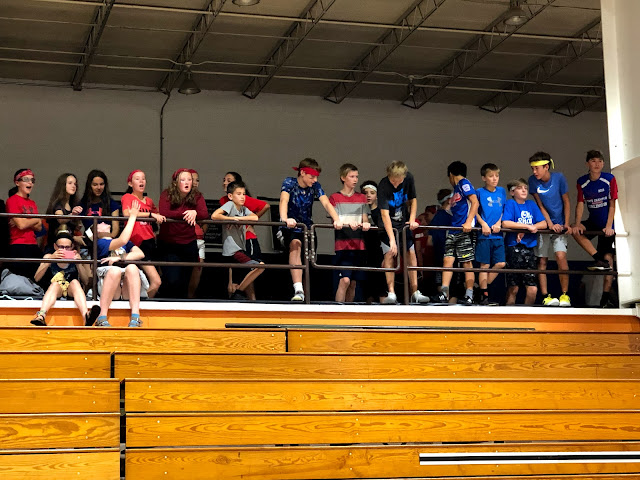KARCHER STAFF BLOG
2019-2020 Karcher Calendar
Facebook Page: https://www.facebook.com/KarcherMiddleSchool/
BASD Staff Blog: https://basdstaffnews.blogspot.com/
2019-2020 Karcher Calendar
Facebook Page: https://www.facebook.com/KarcherMiddleSchool/
BASD Staff Blog: https://basdstaffnews.blogspot.com/
______________________________________________________________________________
Kudos
_____________________________________________________________________________________________________
- Thank you to Brad Ferstenou and Stephanie Rummler for organizing and running the Leadership Field Trip to Camp MacLean for our student council students this past Monday!
- Thank you as well to Sue Bekken and Erika Fons for starting the bowling club again for our students! There was a great turn out of kids in attendance!
- It was great to come around to PLC groups this week and see people tweaking their rubrics, laying out their scope and sequence with Essential Skills, creating formative assessments, and/or reordering summative assessments. This time is a sacred time for us to work on the work and we appreciate your commitment to the work!
- Rod Stoughton set up a field trip for our male choir students. This was a great opportunity for our male students to participate with other male singers throughout the state! Thank you Rod for setting up this opportunity!
- Thank you to Mike Jones and Donna Sturdevant for putting on Friday Night Live! We had 162 students come to attend! Thank you also to Stephanie Rummler, Kurt Rummler, Briana Harris, Barb Berezowitz, Jack Schmidt, and Brad Ferstenou for assisting as well and giving up your Friday night to help! It was a great turn out and such a great opportunity for our students to choose something positive to do on a Friday night!
- Lastly, as I write this it makes me think about a conversation Annie Phillips and I had after Thursday's events. We truly appreciate your professionalism as we come into your classrooms and pull students on a daily basis. We really appreciate your efforts to continue as normal and so great to see our culture is established that is it normal for administration to be in classrooms. Again, we thank you for all you do and for maintaining a calm learning environment for all of our students, even in moments of concern.
Article for the week: This is a continuation of last week!
On Formative Assessment, Edited by Marge Scherer
Feed Up, Back, Forward, by Douglas Fisher and Nancy Frey
Moving Toward Alignment
Check for Understanding
Use Common Assessments
Identify Competencies
Build Toward State Assessments
What the Mariner Teaches Us
_____________________________________________________________________________
Information/Reminders
__________________________________________________________________________________________________________________________
Overall Information:
- Scherrer Construction as created an external doorway between the football field and the former orchestra room (room 39). As shared before our former orchestra room and the old FACE classroom are being taken over by Scherrer Construction to use as their break room, offices, and meeting rooms. This was intentionally provided to them so that we did not have to give up green space across the road of Wainwright (recess grass) to Scherrer for construction trailers.
- On my desk is the VERY FIRST brick to be removed from our current building!
- Middle School Athletics:
- Becky Sagedal is the middle school athletic director. If you have any questions about middle school athletics she is your go to contact person.
- We will also be using the concession stand funds that take place during sporting events to support middle school athletics. This will be something new and I will work with Ruth Schenning and Mike Jones to set up the account, etc.
- If you have questions about this please see Becky Sagedal, Mike Jones, or myself!
This week:
- Monday, September 23
- Start of iReady math testing week.
- District Essential Skills Committee Meeting @ 3:45-5:15 in our Karcher library.
- Tuesday, September 24 - Special Education Department Meeting in the small conference room from 2:40-3:15. Please let Alyssa Riggs know if there are any agenda items you would like to discuss.
- Wednesday, September 25
- PLC focus: Essential Skills and/or Strategy/Skill groups.
- Please make sure we are using our time from 2:40-3:20 to work on either of these two areas of focus. As a reminder, please then complete the PLC reflection form found on the Karcher Calendar.
- Friday, September 27
- Danish Invasion in our 8th grade advisories!!!
- Annie Phillips is creating signs for each advisory. Please send down two of your advisory representatives to find their 3-5 Danish students who will be holding your sign with your name on it.
- Please note this is an Advisory+ day so if you have not received your elective teacher's list of students that will be added to your advisory please reach out to them.
- Elective teachers... please remind students that morning to go to their designated Advisory+ group!
- 7th grade BASD School Forest Field Trip.
- Any questions... ask Barb Berezowitz or Andrea Hancock
- Monday, September 30 - Special Education Aide meeting in the large conference room from 2:40-3:00.
- All special education teachers please also attend!
Looking ahead:
______________________________________________________________________________
Pictures from the week
_____________________________________________________________________________________________________
Students in Mr. Sulik's STEM class created and designed their own motorized car by incorporating one engine, gears, and an axle!
Students thinking like an archeologist in Brad Ferstenou and Katherine Botsford's social studies class in order to connect their "garbage dig" to how cultures and history is pieced together.
Kurt Rummler utilizing the "I do it" portion of the GRR model to model his thinking (metacognition) of how he determines the exact text from a story to support his thinking so that students could then practice citing text evidence correctly within the ACES format.
Students engaged and focused on math or reading during iTime!























































